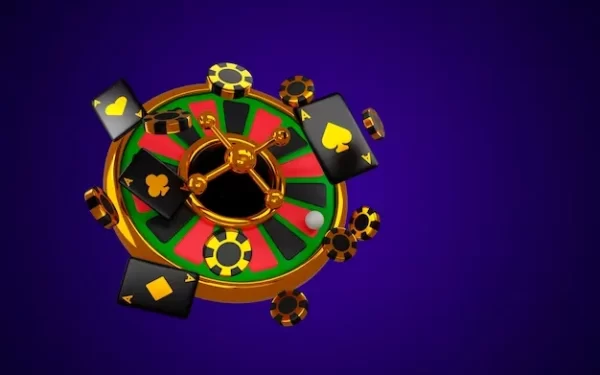Cognitive Spin: Exploring the Intellectual Side of Slot Machines

In the world of gambling, slot machines stand as iconic symbols of chance and luck. Traditionally viewed as purely games of luck, slot machines have evolved beyond their mechanical origins to become sophisticated pieces of technology that engage players on multiple levels, including cognitive and intellectual ones. This article delves into the fascinating intersection of psychology, design, and technology in slot machines, uncovering the cognitive spin behind these seemingly simple yet intricately crafted gaming devices.
Contents
Understanding the Psychology of Slot Machines
Slot machines are more than just flashy lights and spinning reels; they are meticulously designed to exploit certain psychological principles to keep players engaged. Understanding these psychological mechanisms sheds light on the intellectual allure of slot machines.
- Reward System: Slot machines operate on a variable ratio reinforcement schedule, wherein players are rewarded unpredictably. This intermittent reinforcement triggers the brain’s reward system, leading to a dopamine release, which reinforces the behavior of playing.
- Near Misses: Slot machines often display “near misses,” where the symbols come close to aligning for a jackpot but fall just short. These near misses create a sense of almost winning, leading players to believe that they are close to hitting the jackpot, thus encouraging them to continue playing.
- Illusion of Control: Despite being purely random, slot online machines often give players the illusion of control. Features like hold buttons and interactive bonus rounds make players feel like they have some influence over the outcome, even though the results are predetermined.
The Role of Cognitive Biases
Human cognition is susceptible to various biases, many of which slot machine designers leverage to enhance the gaming experience.
- Confirmation Bias: Players tend to remember their wins more vividly than their losses, leading to a distorted perception of their overall success rate. This bias keeps players coming back, chasing the euphoria of past wins.
- Availability Heuristic: The vivid graphics and sounds associated with winning on a slot machine make these events more salient in players’ minds, leading them to overestimate the frequency of winning outcomes.
- Sunk Cost Fallacy: Once players invest time and money into a slot machine session, they are more likely to continue playing in an attempt to recoup their losses, even if the odds are stacked against them.
The Evolution of Slot Machine Technology
Advancements in technology have revolutionized the slot machine industry, transforming them from mechanical marvels to digital powerhouses.
- Random Number Generators (RNGs): Modern slot machines use RNGs to determine the outcome of each spin. These algorithms ensure fairness and randomness, eliminating any predictability or patterns that players might exploit.
- Video Slots: Traditional mechanical reels have been replaced by high-definition video screens, allowing for more dynamic graphics and animations. Video slots can also incorporate intricate bonus rounds and mini-games, adding layers of complexity to the gameplay.
- Online and Mobile Platforms: The advent of online casinos and mobile gaming apps has made slot machines more accessible than ever before. Players can now enjoy their favorite slots from the comfort of their homes or on the go, further blurring the lines between entertainment and gambling.
The Gamification of Slot Machines
Slot machine designers have embraced elements of gamification to enhance player engagement and retention.
- Achievements and Rewards: Many slot machines offer achievement systems where players unlock badges or rewards for reaching certain milestones. These incentives keep players motivated to continue playing and exploring different features of the game.
- Social Integration: Some slot machines allow players to connect with friends or compete against other players in real-time tournaments. This social aspect adds an extra layer of excitement and competition to the gaming experience.
- Personalization and Customization: Modern slot machines often feature customizable settings that allow players to adjust stakes, paylines, and other parameters to suit their preferences. This sense of control enhances player agency and immersion in the game.
Conclusion
Slot machines are not merely games of chance; they are intricately designed experiences that engage players on multiple levels, from the primal thrill of winning to the cognitive challenges of decision-making and risk assessment. By understanding the psychological principles, cognitive biases, and technological innovations behind slot machines, players can approach these games with a deeper appreciation for the intellectual spin that drives their allure. As technology continues to evolve, so too will the ways in which slot machines captivate and challenge players’ minds.

